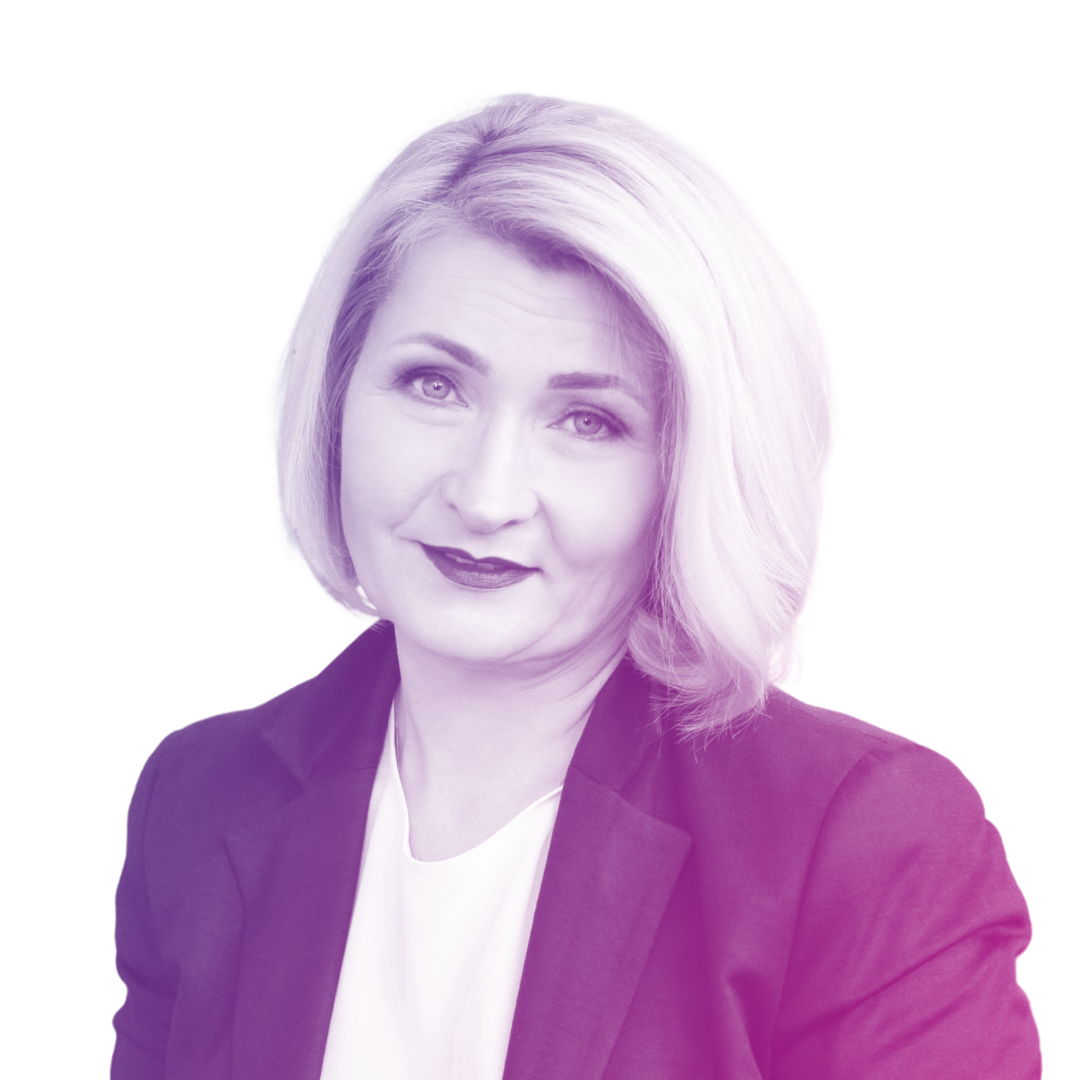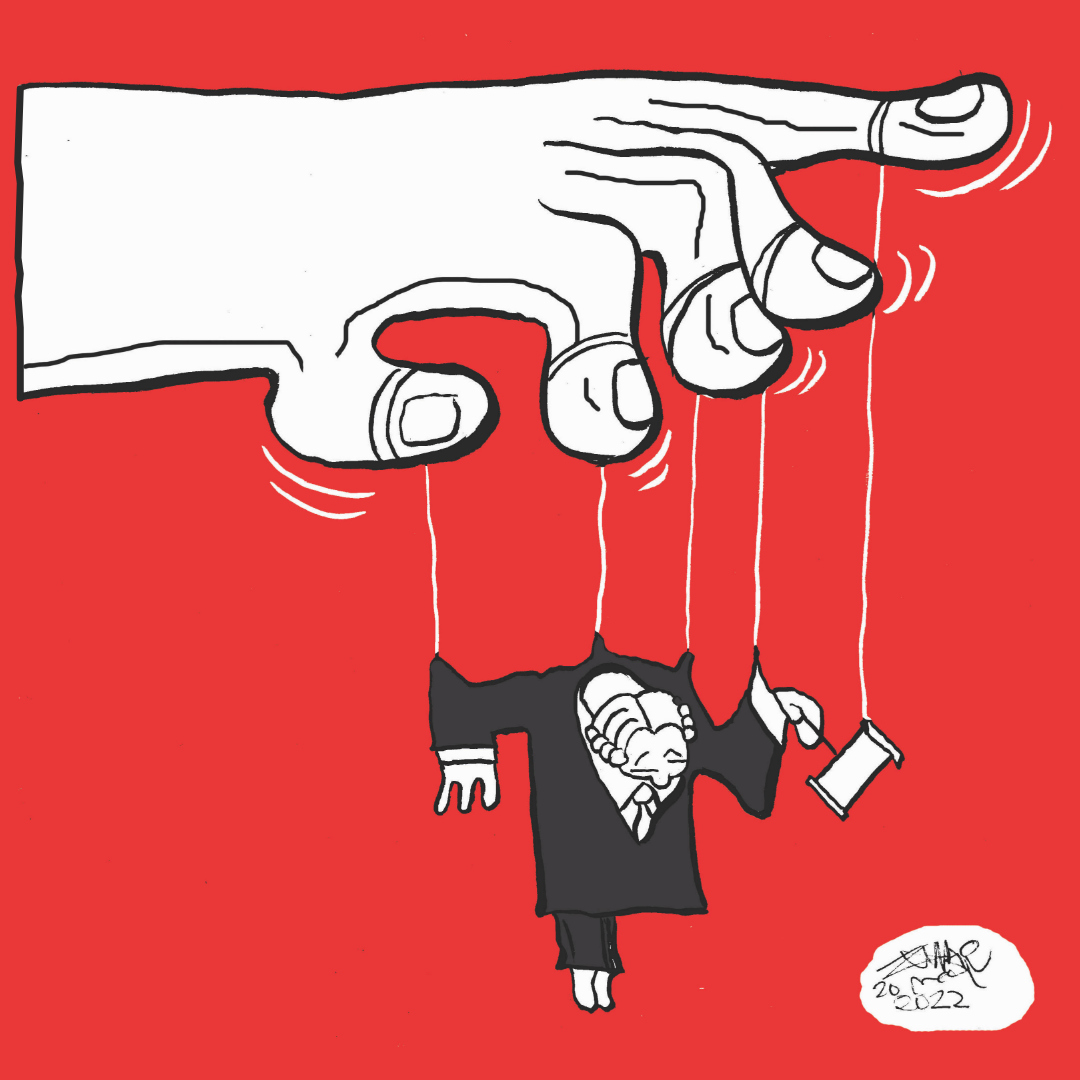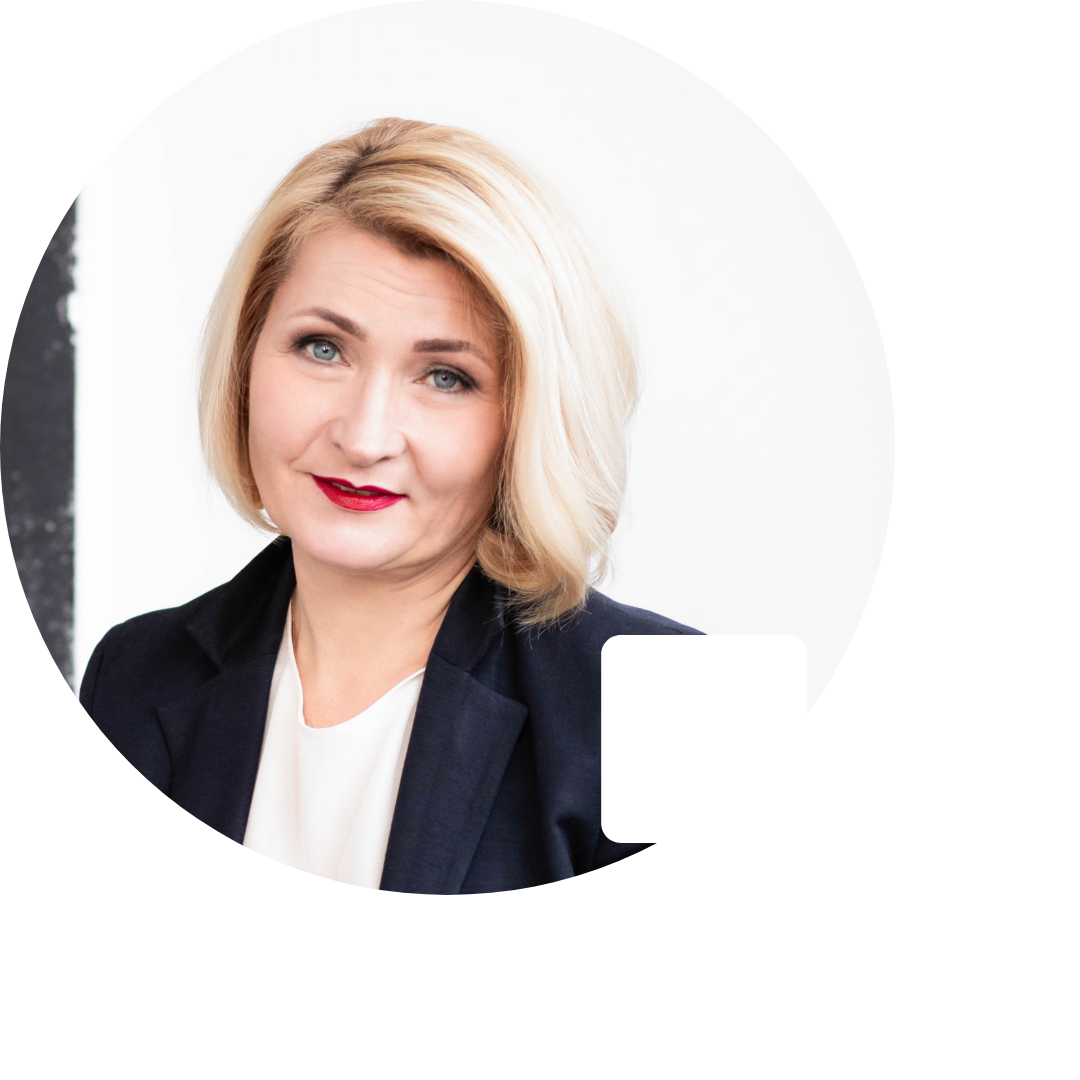
BELARUS
Natalia Matskevich
Natalia Matskevich had been working as a practicing lawyer in Minsk, Belarus, since 1994 until 12 October 2021, when the Minister of Justice of Belarus suspended her license following disciplinary proceedings against her. As a practicing lawyer, she provides legal aid and defends human rights defenders, public activists, politicians, etc. Her field of expertise includes constitutional law, criminal law, and international human rights law. Natalia Matskevich has an LL.M. and lectures at the European Humanities University (Vilnius, Lithuania) since 2009. She also provides informal education and expertise on human rights for lawyers and human rights defenders. She is particularly specialized in international standards of the bar, national legislation, fair trial, role of prosecutors and judges, and counter terrorism in compliance with principles of rule of law.
VITA
Natalia Matskevich had been working as a practicing lawyer in Minsk, Belarus, since 1994 until 12 October 2021, when the Minister of Justice of Belarus suspended her license following disciplinary proceedings against her. As a practicing lawyer, she provides legal aid and defends human rights defenders, public activists, politicians, etc. Her field of expertise includes constitutional law, criminal law, and international human rights law. Natalia Matskevich has an LL.M. and lectures at the European Humanities University (Vilnius, Lithuania) since 2009. She also provides informal education and expertise on human rights for lawyers and human rights defenders. She is particularly specialized in international standards of the bar, national legislation, fair trial, role of prosecutors and judges, and counter terrorism in compliance with principles of rule of law.
Please tell us about your profession. How have you become involved in promotion of human rights and the rule of law?
You could say that I have been working as a lawyer all my life. In 1993, I graduated from the Belarusian State University and one year later, I started practicing law until 12 October 2021, when the Minister of Justice suspended my license following disciplinary proceedings against me. My case was reviewed on 25 October, and on 27 October, I was expelled from the Minsk City Bar Association, depriving me of my lawyers status. I was specialized in criminal law and focused on procedural issues. In the first ten years of my work, I did not know international standards and mechanisms, because they do not teach that at the Belarusian universities. In 2005-2007, I started to study human rights in the form of informal education. At that time, even participation of lawyers in such programs caused dissatisfaction of the governing bodies of the Bar Association. In 2009, my practical work with human rights began, communicating a death penalty case to the UN Human Rights Committee.

As a human rights lawyer, what main activities have you been undertaking in protection of the victims of human rights violations?
I handled two death penalty cases. I defended human rights defenders Ales Bialiatski, head of the Human Rights Center "Viasna", and Gennady Fedynich, chairman of a trade union. Both cases were about freedom of association. I also litigated politically motivated and high profile cases, especially in the period between 2020 and 2021. My clients were two of the main political oppositions of the current government, namely Sergey Tihanovski and Viktar Babaryka. I have submitted a number of communications to the UN Human Rights Committee, five of them identified as violation of the International Covenant on Civil and Political Rights, and four cases are now under consideration. I have also been teaching at the European Humanities University, and in informal educational programs for human rights defenders and lawyers since 2010. That is why my disbarment did not end my human rights work, rather focused more on working with international bodies and human rights education.
You have defended famous political prisoners like Sergey Tihanovski and Viktar Babaryka. Could you tell us how did their cases go?
Let's talk about those political prisoners whom I have defended before the national courts. In the case of Sergey Tihanovski, a blogger, entrepreneur and opposition leader, he was not allowed to register to participate in the presidential elections in Belarus in 2020 and during the registration, he was held under arrest. However, his wife, Sviatlana Tsikhanouskaya, registered herself as a presidential candidate and participated in the elections. She was forced to leave the country and is now considered a Belarusian democratic leader. On 20 May 2020, after his wife registered as a presidential candidate, Sergey Tihanovski was released at the same day. From 24 to 29 May, he led an initiative group and held several pickets to collect signatures for Sviatlana Tsikhanouskaya, which demonstrated the support of a huge number of voters. On 29 May, he was detained again at a picket in Hrodna. His arbitrary detention was recognized by the Working Group on Arbitrary Detention of the UN Human Rights Council in September 2021, after considering our communication. During the investigation, which lasted about a year and four months, I defended Tihanovski. He was charged with organizing mass riots, acts that grossly violated public order, incitement of enmity, and obstruction of the work of the Central Elections Commission.

“Even if there is no legal success, the society and clients see the decent and courageous work of a lawyer, and the work and voice of a lawyer establish support and faith towards future changes.”
Was wurde ihm vorgeworfen?
During this whole period, he was in custody and shortly before his trial; a propaganda film was shown on national TV that included a story with a recording of our "confidential" conversation with him in the detention center. The trial of Tihanovski and five other people started in the Gomel regional court on 24 June 2021. While the trial was going on, films were shown on TV, in which he was portrayed as the bandit who rocked the country. His lawyers were not allowed to tell what was going on in the court, because they had to sign a non-disclosure agreement of the closed trial. On 12 October 2021, in the middle of the trial, I received a notice that as of tomorrow I was suspended and could not return to the court; however, the trial continued. Tihanovski was sentenced to 18 years in prison only for his public statements and participation in peaceful assemblies, while the charge did not even include a single violent act on his part. The court fined him and other convicts $1 million in damages for the alleged extra expenses of the Ministry of Internal Affairs for the police work during the riots.
Und wie verlief das Verfahren gegen Viktar Babaryka?
Viktar Babaryka was another potential and strong candidate in the 2020 presidential elections. Before he declared his intentions to run as a presidential candidate, he had managed one of the largest banks in Belarus (Belgazprombank) for 20 years. His elections campaign was supposed to be successful, evident from the quality of his team and the number of voters who signed for his nomination. A month after the beginning of the campaign, on 18 June 2020, he was detained and arrested for corruption crimes (allegedly taking bribes from clients through the bank management for the last 15 years). His case was handled by the State Security Committee. They tried to present it as an ordinary corruption case, carefully separating it from the political events. Together with Viktar Babaryka, his son was detained and still in custody. His friends and former colleagues (five of them) were also convicted. The heads of firms - clients of the bank - were released from the KGB jail 14 months later after testifying against the bank employees in the court. Together with other lawyers, I defended Viktar Babaryka and we managed to show the people in Belarus that the accusation is baseless and the real aim of the prosecution was to remove him from the elections campaign, and that his rights to defense and presumption of innocence were violated most flagrantly. The Supreme Court considered the case and sentenced Babaryka to 14 years of imprisonment. The verdict of the Supreme Court could not be appealed. We filed two complaints about this case to the UN Human Rights Committee, one in 2020 for arbitrary detention, and one after the trial for violation of the right to a fair trial, freedom of expression, and the right to participate in public affairs. All four lawyers of Babaryka were deprived of their license. I was removed of my status formally for defending Viktar Babaryka, while I was defending Sergey Tihanovski in court.
How do you evaluate human rights activism among lawyers in your country?
It is difficult to talk about the entire legal community. In 2020, the whole country was confronted with gross and massive violations of human rights, especially with torture in detention centers and police stations, involving hundreds of human rights lawyers. These attorneys have proven to be very worthy, and defending people often for a minimal fee. Many lawyers showed professional solidarity, openly speaking up for their colleagues, who at the same time were subjected to repression, arrests and deprivation of their license. Against the background that lawyers performed civic activities in 2020, the state introduced amendments to the law on the Bar in 2021, which completely destroyed the independence and self-government of this institution. The repressive policy of exclusion from the profession continues. That is why lawyers work "silently" out of fear of losing their jobs. In a country where the law does not work and procedural rules do not apply; there is no confidentiality and access to the clients. For example, in the KGB jail, it is necessary to register several weeks in advance in order to arrange a visit with the clients. Any actions of the defense such as complaints, petitions, and statements submitted in advance, have no chance of success. Overall, lawyers have been deprived of their voice through imposition of de facto bans on public speeches of the lawyers outside the courtroom.
Are you worried about your safety?
As for personal safety in my situation, there is obviously none. I continue to promote legal ideas in the public space (commentaries, articles, and educational activities), but there is always a risk that these actions could be viewed as "anti-state activities”. However, I do not want to leave Belarus and give up on my beliefs.
What are the main challenges for lawyers and what window of cooperation will help to improve the situation?
As I explained above, there are no legal grounds for the implementation of human rights advocacy in Belarus. The Law on Bar and Advocacy in Belarus eliminates this possibility and the expulsion of the profession of active and valuable lawyers continues. I do not think that in such circumstances any cooperation can improve the situation. Rather, the principled position of foreign and international human rights organizations and bar associations in disseminating information about the ongoing destruction of the right to defend is appropriate. I am convinced that the reform of the Bar must be radical, but it is possible only under the conditions of the separation of powers and the rule of law.
What is your message for other lawyers with regard to fighting for the scrutiny of democratic values and implementation of human rights?
There are times when a lawyer has to make a choice between whether to remain on a principled stand for human rights or look out for his or her own well-being, especially in a non-democratic state of affairs. If the choice is in favor of well-being, it is better to give up this profession right away, because its essence is the protection of human rights, but if the choice is already made, one should not be afraid and stop. You just have to calmly do your job. Even if there is no legal success, the society and clients see the decent and courageous work of a lawyer, and the work and voice of a lawyer establish support and faith towards future changes. It may seem futile to you, but even in such circumstances, there is another "reward" and that is seeing the grateful eyes of those you are defending.
Belarus
